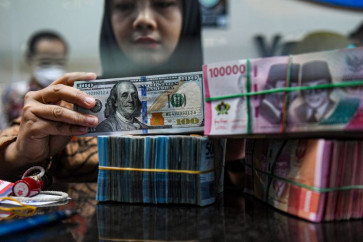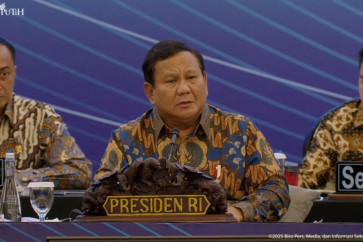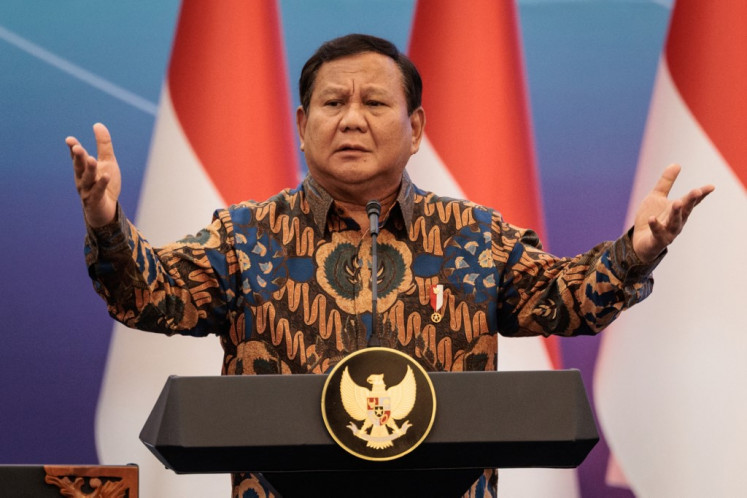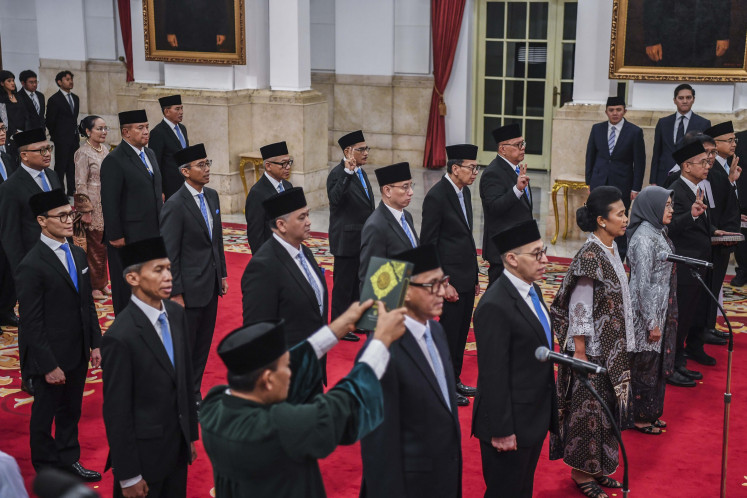Boosting pro-people diplomacy in countering terrorism
Recently, the Grand Imam of Al-Azhar University in Cairo, Muhammad Ahmad Al Thayyib, visited Indonesia to, among other purposes, strengthen the relationship between Egypt and Indonesiaâs Muslim communities
Change text size
Gift Premium Articles
to Anyone

R
ecently, the Grand Imam of Al-Azhar University in Cairo, Muhammad Ahmad Al Thayyib, visited Indonesia to, among other purposes, strengthen the relationship between Egypt and Indonesia's Muslim communities.
The visit means much to Indonesia, which has several times come under terrorist attack. First, this visit clearly advocates the need for promoting peaceful Islamic values. As President Joko 'Jokowi' Widodo said when welcoming the Grand Imam along with his delegation at the State Palace, the visit was an important opportunity to spread Islam's true teachings.
An essential element of the Indonesia-Egypt relationship is that it must be able to support our common efforts to cope with the threat of international terrorism. This was the message from Indonesian Foreign Minister Retno LP Marsudi to her Egyptian counterpart, Sameh Shoukry, during the summit of the Organization of Islamic Cooperation (OIC) earlier this month.
The visit of the imam reiterated the image of Indonesian Islam as rahmatan lil alamin (a blessing for the universe).
Many studies have shown that global-terrorist threats cannot be solved solely by an individual state. In this sense, the practices of dialogue and cooperation, both through government-to-government and people-to-people contacts, should be maintained by Indonesia and Egypt.
Second, this visit also reaffirmed the commitment of President Jokowi to applying a soft approach, in addition to hard approaches, in counterterrorism efforts.
While hard approaches are aimed at crushing terrorist groups, soft approaches seek to address the root causes of terrorism, violent extremism and radicalism.
Jokowi has repeatedly emphasized the importance of a soft approach. As the world's most populous Muslim-majority country, simply relying on a hardline strategies could be counterproductive in eradicating terrorism.
Indeed, Indonesia has the credentials necessary to address radicalism and extremism. However, eradicating homegrown radicalism and extremism is not easy. Not all extremists and radicals carry out violent acts. Nevertheless, extremism and radicalism often serve as dormant terrorist cells, recruiters and spiritual leaders.
__________________________________
The involvement of civilians in a bid to prevent terrorism will potentially reduce the anxiety of terrorism.
In this context, the degree to which the counterterrorism policy is relevant to deterring terrorist organizations also depends on how the government underlines radicalism and extremism. So, deeper cooperation with other countries that are also experienced in promoting tolerance and moderate Islam is unquestionable. Improving government-to-government contact with respected countries seems to be ensured and maintained by the Jokowi administration.
Jokowi has also repeatedly called for a boost to people-to-people links. In doing so, bolstering people-to-people connections between Indonesia and Egypt is important for our collective effort to address radicalism and terrorism.
Improving people-to-people contacts is necessary for at least three reasons. First, it is conducive to our counterterrorism efforts. The involvement of civilians in a bid to prevent terrorism will potentially reduce the anxiety of terrorism.
Second, this also enhances public participation in combating terrorism in both countries, Indonesia and Egypt. Apart from serving as a medium to control the government, engaging the people in combating terrorism would increase the effectiveness of counterterrorism policies.
Third, spreading Islamic teachings through renowned clerics may disrupt terrorist recruitment.
The visit of leading moderate scholars to Indonesia such as Grand Imam Muhammad Ahmad Al Thayyib would help security actors disrupt terrorist recruitment.
Further, exchanging moderate clerics would help the government develop a good counter-narrative against terrorist actions.
In the future, the people-to-people links may take the following forms: continuing the exchange program for academicians and clerics; improving strategic education programs such as holding joint educational activities in promoting tolerance and humanism; and facilitating the amplification of Indonesia-Egypt academic research network such as helping to build joint-academic databases in terrorism and radicalization.
The Grand Imam's visit revealed the more concrete and cooperative relationship between Indonesia and Egypt. This relationship will hopefully enhance Indonesia's counterterrorism policy.
In the same time, the Jokowi administration also always ensures that any counterterrorism policy will empower public participation and not violate democratic and human rights values.
At the end of the day, pro-people diplomacy is about how to develop good relations with other countries, for the sake of the Indonesian people.
___________________________
The writer is Indonesian Ambassador (designate) to Egypt. The views expressed are his own.









